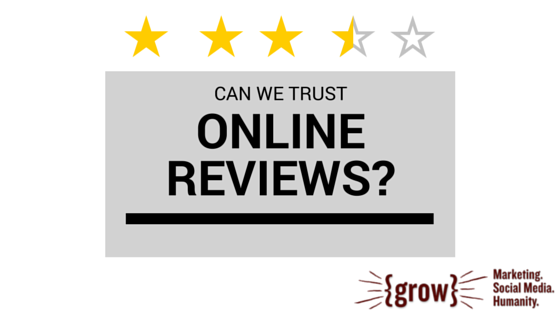As my soon-to-be-husband and I look for the perfect, sunny, and “away from all things technology” honeymoon, we find ourselves reading scores of online reviews.
When you’re spending a small fortune and traveling halfway across the world (we’re thinking Bora Bora) your gut gets a little twisted solely relying on gorgeously blue ocean pics.
Are those photoshopped? That can’t be real.
So like any good consumer we’ve resolved to read every last review of potential hotels to help us make our decision.
I’m sure it’s no surprise to you that we favor the hotels with mostly 4 and 5-star reviews. Mostly. I’ll get to that …
When it comes to American consumerism, a 2015 study by Mintel says:
Americans not only use the internet to stay connected to work, family and friends, but 69 percent seek out advice and opinions on goods and services before purchasing. Of those who seek out advice, shoppers are equally likely to visit user review sites or independent review sites before making a purchase (70 percent), while 57 percent use social media networks for recommendations.
Yet even though so many of us put stock in what our digital friends tell us, it isn’t always so cut and dry.
The Problem With Online Reviews
In our quest for the ultimate honeymoon, I’ve uncovered X areas that ensure I take every 5-star rating with a grain of salt.
1. Accuracy versus opinion
If beauty is in the eye of the beholder, then what you consider “first class” or “the best meal EVER” may vastly differ from my own. Yet when reading reviews we tend to believe (for the most part) the person leaving the online review even though their favorite color is puke green and they despise bacon (gasp!).
Skepticism should be your friend when pouring over reviews. I tend to put my Inspector Gadget hat on and see if they have pictures, grammar or spelling mistakes and am deeply critical of rants.
Helpful hint: When assessing less-than-stellar reviews, look for specifics.
2. There are fakes abound
Whether the best friend of the shop owner left a glowing review to help out, or a competitor came in and trashed a business based on bad blood, you can never truly be sure if what you’re reading is real.
My spidey senses go on alert if every single online review is the MOST. AMAZING. THING. EVER. TIMES. INFINITY.
Come on. I’m sure even the Four Seasons in Bora Bora isn’t perfect.
We aren’t snowed by perfection, and studies point out that a few negative reviews can actually be good for your brand (and can actually increase sales!).
3. Motive comes into play
With reputation management at the forefront of businesses looking to spit shine their online ranking, how do we know that a person was compelled to leave an outstanding review? Maybe there was a contest. Maybe their receipt said something like, “leave a review and get 10% off your next meal.” Maybe they felt pressured to help a new business out.
What worries me about motive is that I like to think reviewers are doing so solely out of sheer admiration of their experience.
Want to hear something really crazy?
Yelp actually dissuades companies from asking for reviews.
And What About Businesses & Marketers?
My consumer point of view (POV) is one thing, but I’m still a business owner.
I understand the need for peer-to-peer recommendations.
And yet, we too need to understand that online reviews are subject to manipulation, lies, and deceit (and we hopefully have no part in that).
As we all rely on user feedback and reviews to fuel our digital footprint, how do we do so with a grain of salt?
How to we prepare for the negative reviews and the problems I listed above and balance that with encouraging reviews?
Or should we be encouraging reviews at all?
I’d love to hear your thoughts on online reviews — whether from the consumer POV, the business POV, or the marketer POV!
See you in the social sphere!
